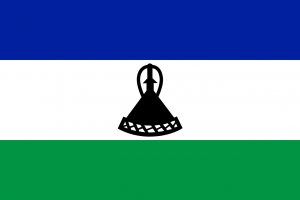Language/Southern-sotho/Grammar/Personal-Pronouns
| ◀️ Noun Classes — Previous Lesson | Next Lesson — Counting Numbers ▶️ |
Introduction[edit | edit source]
Welcome to the lesson on Southern Sotho personal pronouns! In this lesson, we will explore the forms and usage of personal pronouns in Southern Sotho. Personal pronouns are essential in any language as they allow us to refer to people and things without constantly repeating their names. As a student of Southern Sotho, it is vital to understand how to use personal pronouns correctly to communicate effectively. By the end of this lesson, you will be able to confidently use personal pronouns in Southern Sotho sentences.
Forms of Personal Pronouns[edit | edit source]
In Southern Sotho, personal pronouns have different forms depending on the subject or object of the sentence. Let's start by examining the forms of personal pronouns in Southern Sotho:
| Southern Sotho | Pronunciation | English Translation |
|---|---|---|
| Ke | keh (short e) | I, me |
| O | oh | You |
| E | eh | He, she, it |
| Re | reh | We, us |
| Le | leh | You (plural) |
| Ba | bah | They, them |
As you can see, the forms of personal pronouns in Southern Sotho vary depending on the subject or object of the sentence. It is important to note that the personal pronoun "E" is used for both masculine and feminine singular subjects. The pronouns "Le" and "Ba" are used for plural subjects. Now let's explore how to use these pronouns in sentences.
Using Personal Pronouns in Sentences[edit | edit source]
Personal pronouns in Southern Sotho can be used as subjects or objects in sentences. Let's take a look at some examples to understand their usage:
1. Ke tseba ho tšehetsa. (I know how to swim.) 2. O reka ngoana. (You carry the child.) 3. E tlo etsa pampiri. (He/She will make the paper.) 4. Re bona phahameng. (We see ahead.) 5. Le fetola tšepe. (You all clean the dishes.) 6. Ba lekola maikutlo. (They study diligently.)
In these examples, the personal pronouns are used as subjects of the sentences, indicating who is performing the action. They can also be used as objects, indicating who or what receives the action. Let's see some examples of personal pronouns used as objects in Southern Sotho sentences:
1. Ke ya ho wela. (I am going to swim.) 2. O ya ho reka ngoana. (You are going to carry the child.) 3. E ya ho etsa pampiri. (He/She is going to make the paper.) 4. Re ya ho bona phahameng. (We are going to see ahead.) 5. Le ya ho fetola tšepe. (You all are going to clean the dishes.) 6. Ba ya ho lekola maikutlo. (They are going to study diligently.)
In these examples, the personal pronouns are used as objects of the sentences, indicating who or what the action is directed towards. It is important to note that Southern Sotho personal pronouns are used in both the subject and object positions, unlike some other languages where different pronoun forms are used for subjects and objects.
Cultural Insights[edit | edit source]
In Southern Sotho culture, personal pronouns play an essential role in communication. They reflect the values of respect, politeness, and hierarchy within the community. Addressing someone using the appropriate personal pronoun shows respect and acknowledges their position in society. It is common for younger individuals to address older individuals using the pronoun "O," while the older individuals may address the younger ones using the pronoun "Ke." This cultural aspect adds a layer of complexity to the usage of personal pronouns in Southern Sotho.
Practice Exercise[edit | edit source]
Now it's time to practice using personal pronouns in Southern Sotho sentences. Complete the following sentences by choosing the correct personal pronoun from the table:
1. ... ya ho ithuta ho tšehetsa. (I am learning to swim.) 2. ... ya ho reka litšie. (You are carrying the stones.) 3. ... ya ho bona mohlomong. (He/She is seeing the sunrise.) 4. ... ya ho fetola mehlolo. (We are cleaning the rooms.) 5. ... ya ho lekola melomo. (You all are studying languages.) 6. ... ya ho ithuta ho hlahloba. (They are learning to write.)
Solution: 1. Ke ya ho ithuta ho tšehetsa. 2. O ya ho reka litšie. 3. E ya ho bona mohlomong. 4. Re ya ho fetola mehlolo. 5. Le ya ho lekola melomo. 6. Ba ya ho ithuta ho hlahloba.
Conclusion[edit | edit source]
Congratulations! You have successfully learned about Southern Sotho personal pronouns. You now understand the forms of personal pronouns and how to use them in sentences to refer to people and things. Remember to pay attention to cultural nuances when using personal pronouns in Southern Sotho, as they reflect respect and hierarchy within the community. Practice using personal pronouns in your conversations to become more proficient in Southern Sotho. Keep up the great work!
Other Lessons[edit | edit source]
- Pronouns
- Negating Sentences
- Future Tense
- Describing Nouns
- The Alphabet and Pronunciation
- Describing Verbs
- Past Tense
- Negation
- How to Use Be
| ◀️ Noun Classes — Previous Lesson | Next Lesson — Counting Numbers ▶️ |

